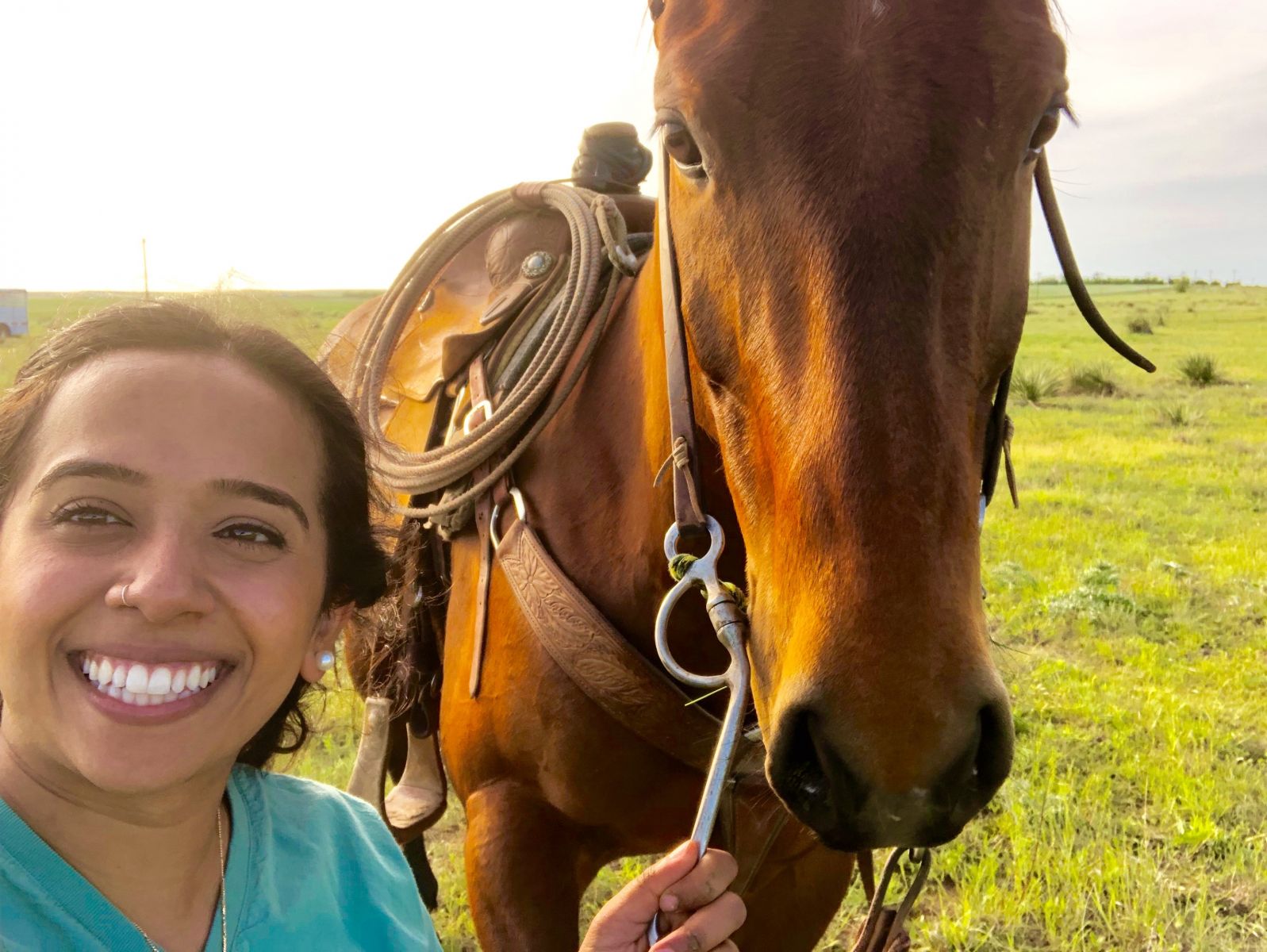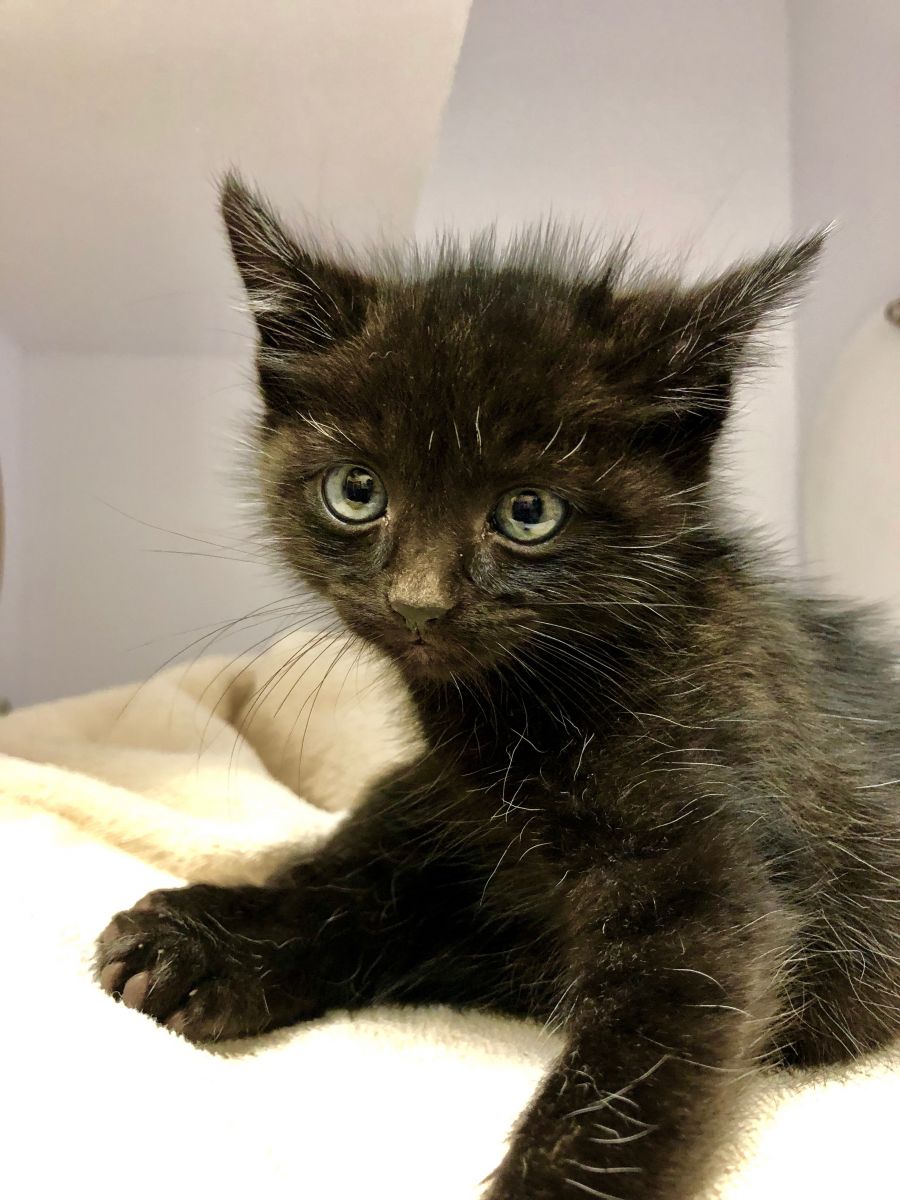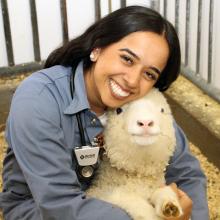I’ve been a city girl for as long as I can remember. I was born in New York City and eventually when we moved to Canada, I was raised in/near Toronto. The dense population, fast-pace life, hustle and bustle is what I’ve always been accustomed to. So, when I made it to Pampa, Texas for my externship, a town with about 15,000 people, I experienced some very real culture shock. I quickly realized that there was no concept of unfamiliar faces in this town, everything was quiet and calm, and kindness oozed out of everyone. It was different but a good different. I always liked the idea of rural life, so I’m not surprised that I’ve been loving life out here in Texas.
Aside from lifestyle and culture, I found practicing veterinary medicine in a rural town was also very different than what I’m used to. I’ve worked in a few clinics both before and during veterinary school – whether they be in Guelph or the GTA, I’ve become relatively familiar with practicing in a busy city. I’d say now that I’ve experienced both urban and rural practice, the two types are worlds apart. For instance, in the city, speciality practices are nearby meaning that complex cases can be referred to a facility that can tend to the particularities of difficult cases. In a rural town  such as Pampa, speciality practices are many miles away, so veterinarians essentially have to be a jack of all trades. In just the first week of my externship, I saw an incredibly diverse case load: a proptosed eye (an eye bulging out of the eye socket), a highly invasive soft tissue cancer sarcoma, an ovarian tumor the size of a cantaloupe, dogs with parvo (a highly contagious and serious viral illness in dogs), heart failure, large lacerations, complete fractures, hematoma (localized bleeding outside of blood vessels) and many more interesting cases. Because referring cases is often not practical, a rural veterinarian has to be an ophthalmologist, oncologist, surgeon, cardiologist, neurologist, anesthesiologist and orthopedist. Although that would seem to be a large burden, I suspect that most veterinarians love the challenge as I have thus far. I’m the type of learner who absorbs things by doing them so having a high-traffic clinic with a variety of cases has been essential for me to solidify what I’ve learned in veterinary school. I’ve spent the past three years working tirelessly to learn as much as I can and to now to get the opportunity to see a lot of the diseases and pathologies we’ve discussed in school has been nothing less than rewarding.
such as Pampa, speciality practices are many miles away, so veterinarians essentially have to be a jack of all trades. In just the first week of my externship, I saw an incredibly diverse case load: a proptosed eye (an eye bulging out of the eye socket), a highly invasive soft tissue cancer sarcoma, an ovarian tumor the size of a cantaloupe, dogs with parvo (a highly contagious and serious viral illness in dogs), heart failure, large lacerations, complete fractures, hematoma (localized bleeding outside of blood vessels) and many more interesting cases. Because referring cases is often not practical, a rural veterinarian has to be an ophthalmologist, oncologist, surgeon, cardiologist, neurologist, anesthesiologist and orthopedist. Although that would seem to be a large burden, I suspect that most veterinarians love the challenge as I have thus far. I’m the type of learner who absorbs things by doing them so having a high-traffic clinic with a variety of cases has been essential for me to solidify what I’ve learned in veterinary school. I’ve spent the past three years working tirelessly to learn as much as I can and to now to get the opportunity to see a lot of the diseases and pathologies we’ve discussed in school has been nothing less than rewarding.
 Rural practice, particularly in Texas, also means that the opportunity to treat large animals is there. As I mentioned, I’m a city girl so prior to veterinary school I had very limited large animal experience but OVC ensured that we got comfortable working with large animals and learned about large animal medicine. Even still, driving out to farms in Texas with more than 6,000 cattle was a bit of a shock. However, I saw it as an opportunity to learn and practice more with large animals. As a veterinarian, you’re expected to treat all animals regardless of the species and working in a rural practice provides the opportunity to handle and treat all kinds of animals. I went to farms with cattle, horses and goats just in my first week.
Rural practice, particularly in Texas, also means that the opportunity to treat large animals is there. As I mentioned, I’m a city girl so prior to veterinary school I had very limited large animal experience but OVC ensured that we got comfortable working with large animals and learned about large animal medicine. Even still, driving out to farms in Texas with more than 6,000 cattle was a bit of a shock. However, I saw it as an opportunity to learn and practice more with large animals. As a veterinarian, you’re expected to treat all animals regardless of the species and working in a rural practice provides the opportunity to handle and treat all kinds of animals. I went to farms with cattle, horses and goats just in my first week.
I’ve always thought that after graduation, I’d move to a major city that I liked and practice veterinary medicine there – I’d likely feel satisfied and happy. However, now that I’ve experienced veterinary medicine in a small town, I’ve realized that maybe the best decision at least initially, would be to move to a rural practice. The amount I’ve learned in the little time that I’ve been here so far is directly due to the cases I’ve had the opportunity to see and having an amazing mentor.
